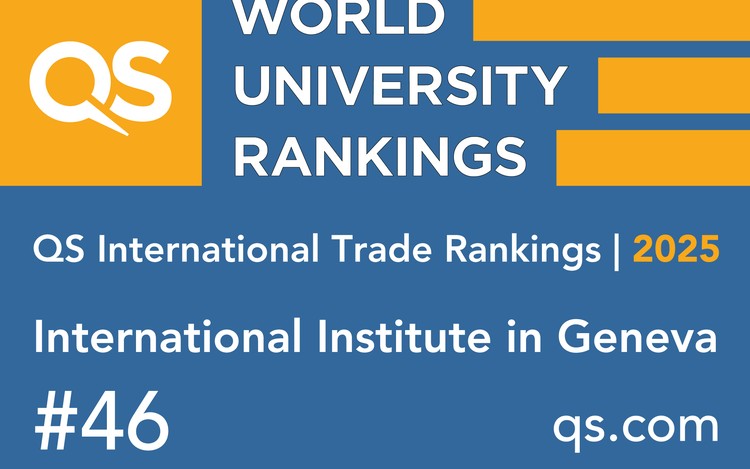Course Descriptions
-
ECO 610 – Global Economics & Development This course aims to examine the working of a national economy and the critical role that businesses play in it. It provides insights into the workings of economic policy and the issues discussed in current policy debates. It studies business cycles and the impact of policies on short-term fluctuations. It then turns to the longer term by examining economic growth and its drivers. It studies development and the strategies pursued by successful developing countries. It analyses the Sustainable Development Goals and contributes to a better understanding of the need for multilateral and regional economic cooperation and national economic policies for sustainable development. The course provides an understanding of challenges confronting the global economic order, impacts of the trade and investment policies, the role of financial system and the regional market integration.6.00
-
MGT 657 – Logistics & Project Management This course provides a systematic overview of design, control and improvement of operations, projects, logistics and supply chain related management issues. It renders the rationale and practices of optimizing the global supply chain and leveraging it as a value-creating strategy to gain competitive advantage in the global marketplace. The project management key success factors will be presented, examined, discussed, and applied by the students on concrete projects. In the meantime, it addresses issues related to sustainability, quality management, and the challenges of establishing trust and collaboration amongst operation partners.6.00
-
TEC 610 – Introduction to Big Data Analysis The digital revolution continues to transform the world and generates massive amounts of data in all areas of business, science, government, and social media. With more readily available data and the advancements in machine learning/AI, organizations in private and public sectors, governments and consultancy companies are seeking individuals, data scientists, who can explore/analyse/ visualize these data to derive insights, make better decisions and solve real company problems. This course is an introduction to the rest of the program, and it should be used to understand the “Big Picture”: fundamentals of database modelling and design, how to access, integrate, organize, prepare, and transform data for data analytics. Students will have the opportunity to practice data discovery, visualization and analytical techniques through case studies and hands-on exercises using some commercial applications/tools with real data.6.00
-
FIN 625 – Financial Reporting and Analysis This is an interactive course that provides students with knowledge in financial accounting and enhances practical skills in using financial statements to evaluate value creation of the entity. Combining case discussions of actual companies’ financial statements and rigorous framework (IFRS & US GAAP) this course will enrich students' understanding of accounting tools, skills necessary to critically analyse firms’ actions and expose them to the current business landscape. In a collaborative atmosphere students will not only learn the accounting concepts, how to prepare basic financial statements for incorporated entities and groups of companies but will also discover how to look behind the numbers, gain an understanding of the choices enterprises make in reporting the results of their business activities to be able to analyse financial statements effectively.6.00
-
MGT 620 – Change Management & Environment, Social and Governance (ESG) This course introduces students to organisational design and why, in today’s ever changing macro context, an organisation’s success is dependent on its ability to evolve structures, processes and people in an agile way. Topics include strategy, sustainability, ESG, organisational and individual performance management, leadership and change management.6.00
-
MKG 610 – Global Marketing in the Digital World In a world of increased globalization and technological advancement, companies have had to rethink their marketing strategies, address the challenges stemming from digitalization, and seize the opportunities arising from operating in the digital age. In this course, students will gain an understanding of the foundations of global marketing and learn how to develop a marketing plan that takes into account the macroeconomic, cultural, and technological factors that affect companies in their effort to create brands that resonate with today’s customers. The program will emphasize the ways in which digital marketing, e-commerce, social media can be leveraged to engage with the company’s target audience and effectively market a product or service that creates value for stakeholders.6.00
-
FIN 645 – Corporate Finance & Risk Management This course develops students’ understanding of the core financial dimensions of business and its related key issues in modern corporate world such as cost of capital mergers and acquisitions, IPOs, financial markets, and a glimpse into Financial Technology (FinTech) sector as an emerging industry. A range of risk management tools and techniques will be explored, as will the risk capital requirements for banks. Students should be able to understand the different types of financial institutions, the risk associated with their business, measuring, and managing these risks. The theories are presented within a context, which motivate students and equip them with practical tools for financial decision making and valuation; the skills they will require in their future careers.6.00
-
MGT 630 – Turning Idea to Success Innovation can no longer be viewed as a sideshow. It is the way to do business and a key driver of sustainable growth. This module is designed to help students develop the skills and knowledge necessary to turn innovative ideas into successful businesses. Students will learn the importance of innovation for businesses, different types of innovation, how to identify and evaluate potential business opportunities, develop effective business plans, understand the importance of customer validation in business planning and execute on those plans to achieve their goals. The module will cover key topics such as innovation, business development, and business plan development, with a focus on practical application.6.00
-
BUS 698 – Corporate Strategy - Capstone Course This course examines the objectives and strategies of senior management for the attainment of corporate goals. The course takes an interdisciplinary and strategic approach to the firm's corporate policy. The interrelationship between the policies of international firms and the global business environment is analyzed. Emphasis is given to understanding the influence of the framework and issues of strategic decisions on the overall performance of the firm.6.00
-
NEG 620 – Negotiation This course aims to prepare students for effective negotiations across different and evolving settings, from business to international organisations. Students will learn a variety of negotiation strategies, techniques, and approaches that will immediately impact their negotiation effectiveness and ability, allowing them to succeed in any career where mastering Negotiation Fundamentals is essential. The course will adopt a case study approach, allowing students to develop/improve their knowledge and skills in communication, ethical reasoning, analytical skills, reflective reasoning, multiculturalism, and diversity. Throughout the course, the students will have opportunities to practice and fine-tune the knowledge and skills being taught.6.00




.PNG)








